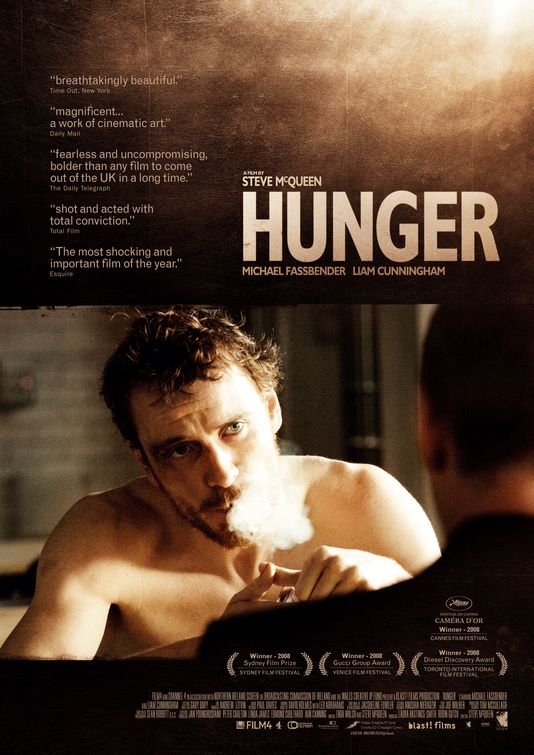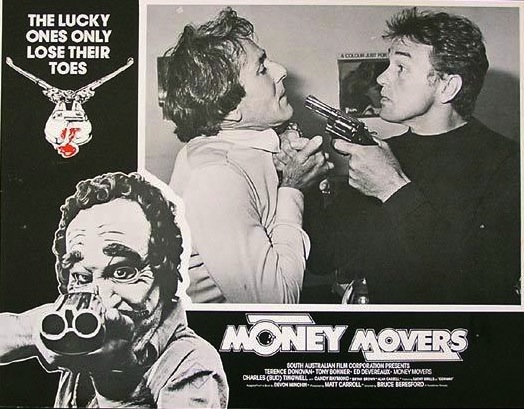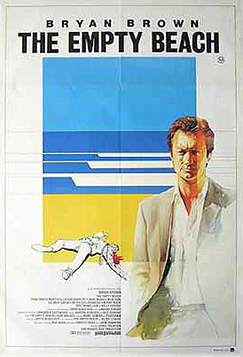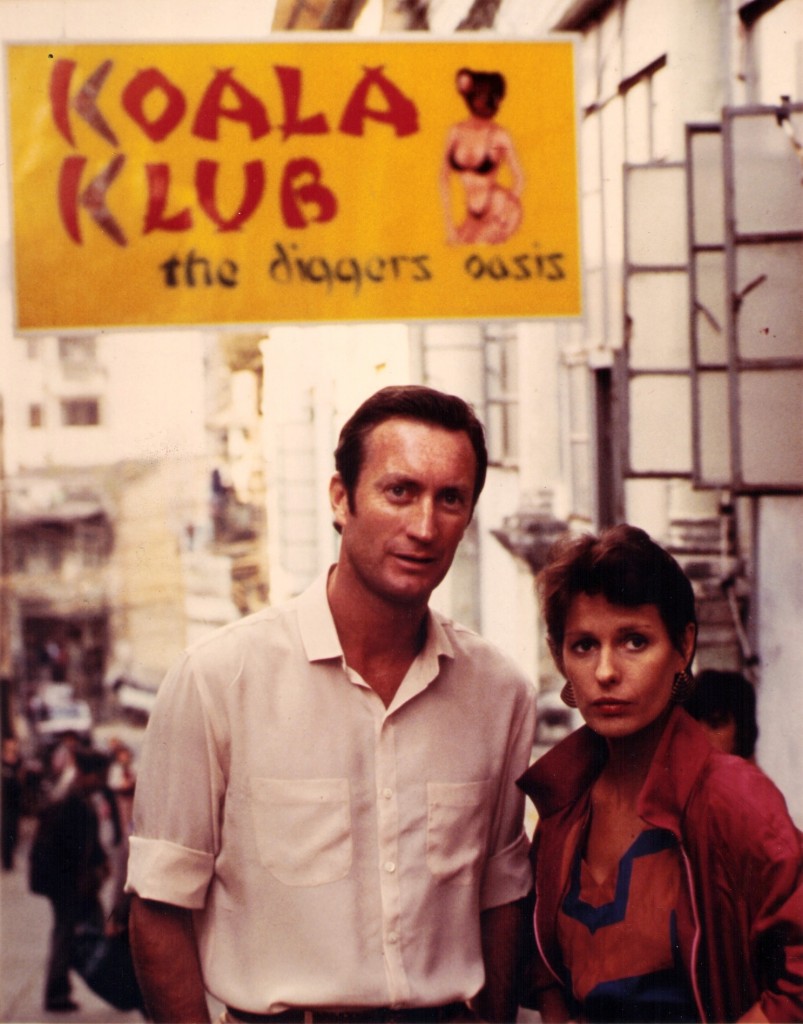Search
-
Recent Posts
- Dishing up Pulp Curry in a new way: why I am starting a Substack newsletter
- Book reviews: Deadly dames, midcentury Brit pulp and 1970s science fiction
- Mackenna’s Gold (1969): Gold, Ghosts and Frontier Violence
- Orphan Road book launch
- Orphan Road now available
- Pre-orders open for my new novel, Orphan Road
- Cover reveal: Orphan Road, my follow up to Gunshine State
- Breakfast in the Ruins podcast: New English Library Bikermania
- Why 1973 was the year Sidney Lumet took on police corruption
- Men’s Adventure Quarterly: Gang Girls issue
Categories
- 1960s American crime films
- 1970s American crime films
- 1980s American crime films
- 1990s American crime films
- Adrian McKinty
- Albert Dekker
- Andre De Toth
- Angela Savage
- Angie Dickinson
- Anthony Zerbe
- Asian noir
- Australian crime fiction
- Australian crime film
- Australian noir
- Australian popular culture
- Australian pulp fiction
- Australian television history
- Ava Gardner
- Beat culture
- Belmont Tower Books
- Ben Wheatley
- Billie Whitelaw
- Black pulp fiction
- Blaxsploitation
- Book cover design
- Book Reviews
- British crime cinema
- British pulp fiction
- Bryan Brown
- Burt Lancaster
- Carter Brown
- Charles Durning
- Charles Willeford
- Chester Himes
- Christopher G Moore
- Christopher Lee
- Cinema culture
- Claude Atkins
- Coronet Books
- Crawford Productions
- Crime Factory
- Crime Factory Publications
- Crime fiction
- Crime fiction and film from Africa
- Crime fiction and film from Cambodia
- Crime fiction and film from China
- Crime fiction and film from India
- Crime fiction and film from Indonesia
- Crime fiction and film from Japan
- Crime fiction and film from Laos
- Crime fiction and film from Latin and Central America
- Crime fiction and film from Malaysia
- Crime fiction and film from New Zealand
- Crime fiction and film from Scandinavia
- Crime fiction and film from Singapore
- Crime fiction and film from South Korea
- Crime fiction and film from Thailand
- Crime fiction and film from the Philippines
- Crime Fiction and film set in Vietnam
- Crime film
- Dangerous Visions and New Worlds Radical Science Fiction 1950 to 1985
- David Goodis
- David Peace
- David Whish-Wilson
- Derek Raymond
- Diana Dors
- Dirk Bogarde
- Don Siegel
- Don Winslow
- Donald Westlake aka Richard Stark
- Dystopian cinema
- Ernest Borgnine
- Eurocrime
- Fawcett Gold Medal Books
- Femme fatale
- Fernando Di Leo
- Filipino genre films
- Film Noir
- Forgotten Melbourne
- French cinema
- French crime fiction
- Garry Disher
- Gene Hackman
- George V Higgins
- Georges Simenon
- Ghost Money
- Giallo cinema
- Gil Brewer
- Girl Gangs, Biker Boys and Real Cool Cats: Pulp Fiction & Youth Culture, 1950-1980
- Gloria Grahame
- Gold Star Publications
- Gregory Peck
- Gunshine State
- Heist films
- Horror
- Horwitz Publications
- Humphrey Bogart
- Ian Fleming
- Interviews
- Ira Levin
- James Caan
- James Crumley
- James Ellroy
- James Hadley Chase
- James Woods
- Jim Brown
- Jim Thompson
- Joel Edgerton
- John Frankenheimer
- Joseph Losey
- Karen Black
- Kerry Greenwood
- Kinji Fukasaku
- Larry Kent
- Laura Elizabeth Woolett
- Lee Marvin
- Leigh Redhead
- Lindy Cameron
- M Emmet Walsh
- Mad Max
- Mafia
- Malla Nunn
- Martin Limon
- Megan Abbott
- Melbourne International Film Festival
- Melbourne Writers Festival
- Men's Adventure Magazines
- Michael Caine
- Michael Fassbender
- Mickey Spillane
- Monarch Books
- Ned Kelly Awards
- Neo Noir
- New English Library
- Newton Thornburg
- Noir Con
- Noir fiction
- Non-crime reviews
- Oren Moverman
- Orphan Road
- Ozsploitation
- Pan Books
- Parker
- Paul Newman
- Peter Boyle
- Peter Corris
- Peter Strickland
- Peter Yates
- Poliziotteschi
- Pulp fiction
- Pulp fiction in the 70s and 80s
- Pulp fiction set in Asia
- Pulp Friday
- Pulp paperback cover art
- Qui Xiaolong
- Raymond Chandler
- Richard Burton
- Richard Conte
- Robert Aldrich
- Robert Mitchum
- Robert Ryan
- Robert Stone
- Rock Hudson
- Roger Smith
- Rollerball
- Rosaleen Norton
- Roy Scheider
- Rural noir
- Sam Levene
- Sam Peckinpah
- Samuel Fuller
- Science fiction and fantasy
- Scripts Publications
- Sidney Lumet
- Sidney Poitier
- Simon Harvester
- Snowtown
- Snubnose Press
- Spies
- Stanley Baker
- Sterling Hayden
- Steve McQueen
- Sticking it the the Man Revolution and Counter Culture in Pulp and Popular Fiction 1950 1980
- Stuart Rosenberg
- Tandem Books
- Tart noir
- Tartan Noir
- Ted Lewis
- Toni Johnson Woods
- True crime
- Vicki Hendricks
- Victor Mature
- Vintage mug shots
- Vintage pulp paperback covers
- Wallace Stroby
- War film
- Westerns
- William Friedkin
- Woody Strode
- Yakuza films
- Yaphet Kotto
Nothing but noir
Recommended reading
The lurid world of pulp
- 20th century Danny Boy
- American Pulps
- Bear Alley
- Bloody, Spicy, Books
- Comics Down Under
- Everything second hand
- Existential Ennui
- Greenleaf Classic Books
- Irv O. Neil's Erotica is My Trade
- Killer Covers
- Lost Classics of Teen Lit 1939-1989
- Luminist Archives
- Men's Pulp Mags
- Mporcius Fiction Log
- Murder, Mayhem and Long Dogs
- Neglected Books
- Nocturnal Revelries
- Paperback Warrior
- Paperbacks of the Gods
- Pop Sensation
- Pulp artists
- Pulp Covers
- Pulp Crazy
- Pulp Flakes
- Pulp International
- Pulp Magazines Project
- Pulp Serenade
- Realms of the Night
- Romance Fiction Has a History
- Rough Edges
- Sin Street Sleaze
- Spy Guys and Gals
- The department of Afro American Research Arts & Culture
- The Dusty Bookcase
- The Haunted World of Richard Sala
- The Moon Lens
- The Nick Carter & Carter Brown Blog
- The Pulp & Paperback Fiction Reader
- Too Much Horror Fiction
- True Pulp Fiction
- Vault of Horror
- Vintage Nurse Romance Novels
- Vintage Romance Novels
- Welcome to the Pan Paperback
- Yellow and Creased
Support This Site
If you like what I do please support me on Ko-fi
Category Archives: Bryan Brown
Hunger and other films about doing time
 I haven’t spent a lot of time in prisons and don’t want to. But I won’t deny they make tremendous story settings.
I haven’t spent a lot of time in prisons and don’t want to. But I won’t deny they make tremendous story settings.
This was brought home to me again over the weekend after watching Hunger, Steve McQueen’s 2008 depiction of the final months in the life of IRA militant Bobby Sands. Sands and 9 other IRA inmates staved themselves to death in 1981 in protest against the Thatcher government’s insistence of treating them as common criminals rather than political prisoners.
I recently reviewed Adrian McKinty’s book The Cold Cold Ground, which dealt with a Catholic cop in a Protestant neighbourhood trying to solve a murder against the backdrop of the civil unrest unleashed by the hunger strikes.
Hunger is about what happened inside the walls of the Maze Prison. It’s a visceral, blistering film, all the more so because it’s made with incredible slight of hand.
It opens with the arresting image of a pair of bloody knuckles being soaked in water. These belong to one of the prison guards and were acquired administering incredibly savage beatings to IRA prisoners in response to their “blanket and dirty protests” in which the prisoners refused to wash and smeared shit over the walls of their prison cells. The guard is subsequently murdered in the aged care home where his mother lives, one of 16 guards killed by paramilitaries in retaliation for the treatment of the prisoners.… Read more
Posted in 1960s American crime films, 1970s American crime films, 1980s American crime films, Adrian McKinty, Australian crime film, Bryan Brown, Burt Lancaster, Film Noir, James Woods, Michael Fassbender, Stuart Rosenberg
Tagged A Prophet (2002), Adrian Mckinty, Alan Parker, Big Doll House (1971), Brute Force (1947), Burt Lancaster, Caged (1950) Agnes Morehead, Christopher Dale Flannery, Cold Ground, Cool Hand Luke (1967), Ernest Brawley, Everynight... Everynight (1994), Fast Walking (1982), Ghosts of the Civil Dead (1988), Hunger (2008), Jackson County Jail (1976), Jacques Audiard, James Woods, McVicar (1980), Michael Fassbender, Midnight Express (1980), Night and the City (1950), prison films, Steve McQueen, Stir (1980), Stuart Rosenberg, The Cold, The Rap, Thieves Highway (1949)
Money Movers: unearthing a rare Australian noir
 There’s a lot of justified hype about the period of Australian film from the mid-seventies to the mid-eighties known as “Ozploitation”, when the creation of film funding bodies and the introduction of government tax breaks to encourage investment in the industry saw an explosion of local production.
There’s a lot of justified hype about the period of Australian film from the mid-seventies to the mid-eighties known as “Ozploitation”, when the creation of film funding bodies and the introduction of government tax breaks to encourage investment in the industry saw an explosion of local production.
But there was one genre of movie the Ozploitation period did not do well or often – crime.
One of the few exceptions is Bruce Beresford’s heist movie, Money Movers. Adapted from the novel of the same name by an ex-security officer, like a lot of films from the Ozploitation period, Money Movers completely flopped when it was released in 1979.
Unlike like a lot of the Ozploitation movies that have since gone on to enjoy critical and cult acclaim, Money Movers remains little known or appreciated, despite a dvd version being released in 2004. This is a pity because Money Movers is proof Australia could knock out a noir as gritty and multi-layered as the best of them.
Its hardboiled feel is established in the opening scenes, muster time in the counting house of Darcy’s Security Services. The armoured car drivers exchange jokes and take a last drag on their cigarettes before going on the weekly bank run. Two of them, Brian Jackson (iconic Australian actor Bryan Brown) and his brother, Eric (Terence Donovan), head of security at Darcy’s, pause to observe money being unloaded from a truck with particular interest.… Read more






















